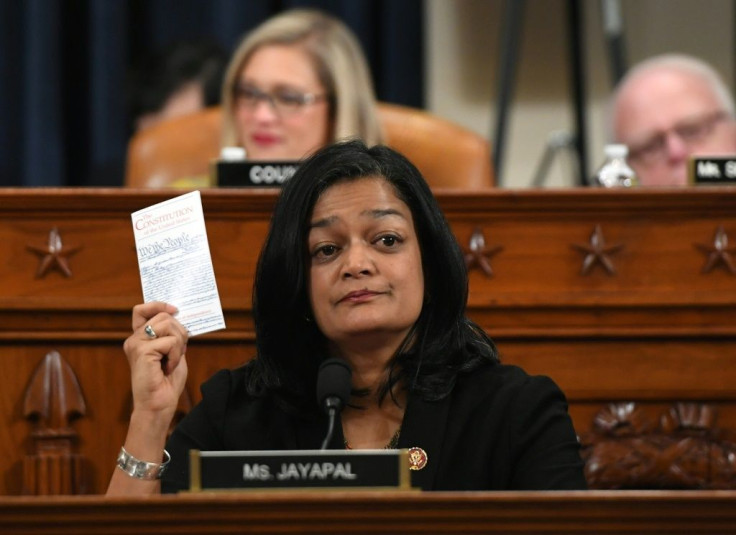Conservative Senator And Progressive Representative Both Want Government To Pay Worker’s Salaries

KEY POINTS
- Conservative Josh Hawley wants to pay 80% of worker salaries "up to the median wage"
- Progressive Pramila Jayapal wants to pay 100% of worker salaries up to $100,000 for three months
- Both plans have the same basic framework as bills passed across Europe
Rep. Pramila Jayapal, D-Wash., and Sen. Josh Hawley, R-Mo., have both come out in favor of similar plans with the same basic framework: the government should pay worker’s salaries while the economy contracts in the face of the COVID-19 pandemic. Both proposals differ quite a bit in size and scope, but the basic concept of the government paying people to not work is the same.
In an op-ed published in The Washington Post this week, Sen. Hawley wrote that “Beginning immediately, the federal government should cover 80 percent of wages for workers at any U.S. business, up to the national median wage, until this emergency is over. Further, it should offer businesses a bonus for rehiring workers laid off over the past month.”
On Friday, Rep. Jayapal introduced legislation to the House of Representatives which proposes “a streamlined program to provide a three-month federal guarantee for 100 percent of worker salaries of up to $100,000 to ensure employers of all sizes keep workers on the payroll and continue to provide employer-sponsored benefits.”
According to the U.S. Census Bureau, Hawley’s plan to pay 80% of wages “up to the national median wage” means that the benefit will max out around the national median wage of $31,000, highlighting the vast difference between the size and scope of each plan. However, the fundamental nature of both proposals are in line with what governments across Europe have enacted in response to the crisis, and they both differ greatly from the stimulus bill already passed by the United States Congress, which just issued a one-time check for $1,200 and created a complicated loan system for various sized businesses.
The British government will be covering 80% of worker’s salaries during the crisis, up to a maximum benefit of $3,100 per month. Germany’s state-funded social safety net known as Kurzarbeit will cover 60% of lost wages and 67% for those with children. France will cover 84% of worker salaries and 100% of those making minimum wage.
Spain and the Netherlands have also enacted similar programs, as these governments are effectively paying workers to not work while attempting to save employers from economic devastation as the global economy slows down in the effort to halt the spread of the coronavirus.
If these progressive and conservative congresspeople have their way, the United States could soon follow suit.
© Copyright IBTimes 2025. All rights reserved.





















